
In October, 2024, a research study conducted by high school students from Beijing Haidian Kaiwen Academy (HDKWA) was accepted for the American Geophysical Union (AGU) 2024 Fall Meeting.
The research, conducted by five Grade 12 students—Sky Huang, Thomas Xu, Jenny Fan, Tim Zhang, and David Tang—focused on the inorganic nitrogen concentration in an artificial lake within an urban forest. After developing an interest in the ecological management of the school’s lake in 2023, the five students, under the guidance of science teacher Dr. Dong Zheng, conducted a year-long study on the lake’s chemical characteristics. They submitted their findings to AGU in July, 2025, and the study was officially accepted in October. In December, the students will participate in the online Poster Session at the AGU 2024 Fall Meeting to share their research with scholars from around the world.
"This is a student-led research project supported by the school," said Dr. Dong. "According to available data, this is the first time AGU has accepted such a study conducted by high school students on a high school campus."
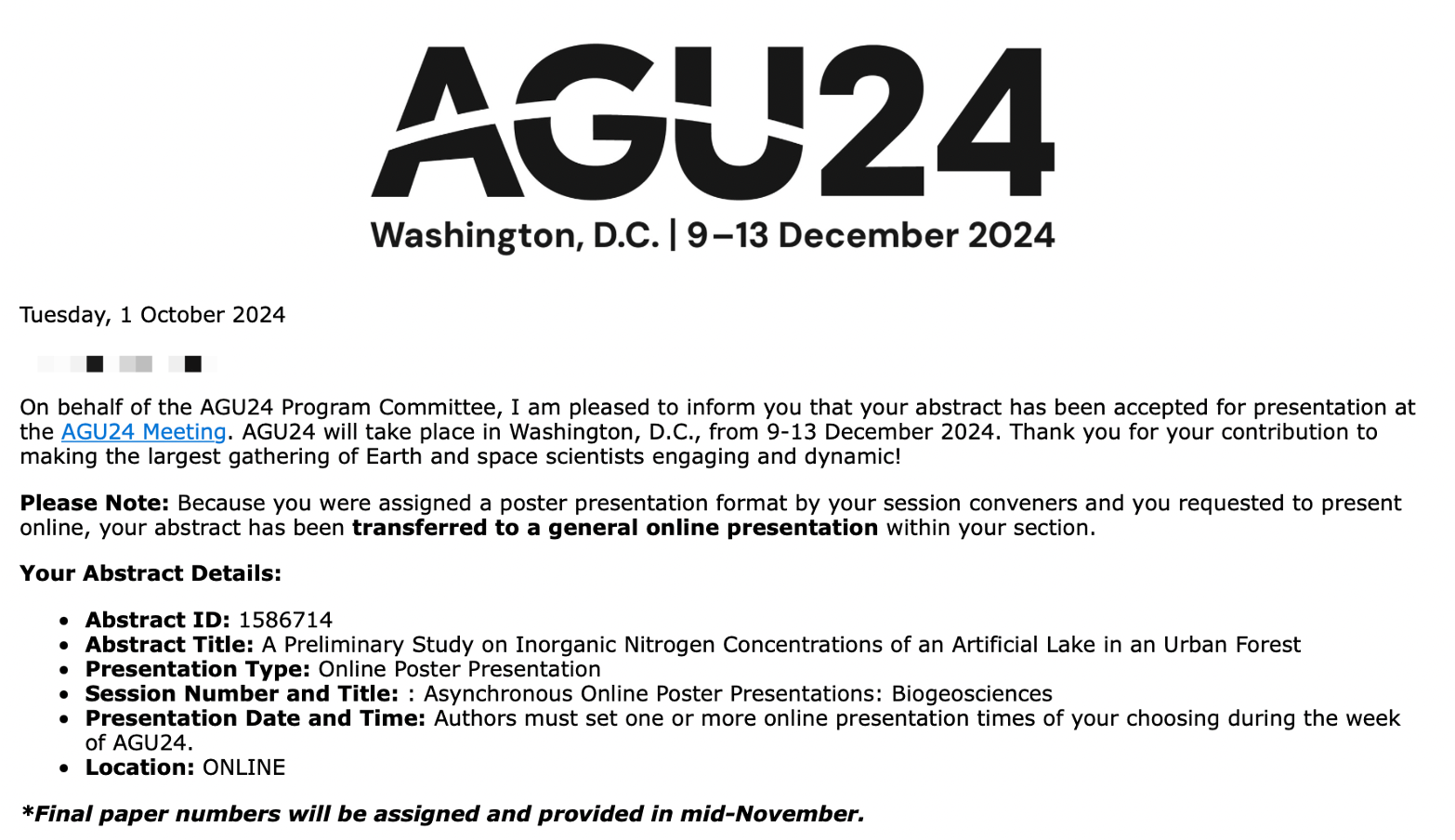
The American Geophysical Union is a nonprofit academic and scientific organization in the field of Earth and space sciences, established in 1919 by the National Research Council of the United States. The annual meeting organized by AGU is one of the largest international conferences in the fields of Earth and space sciences. Experts, scholars, and representatives from related disciplines worldwide gather in the meeting to exchange and discuss the latest research findings.
The acceptance of this research project is a recognition of the students’ efforts over the past year and a testament to the school’s long-term focus on academics and disciplinary development. Behind this research, we see several passionate HDKWA students turning a small idea into a feasible plan through learning and practice, ultimately achieving research results. More importantly, while focusing on their own growth, they remain committed to caring for their surroundings, striving to become problem-solvers and bringing positive change to the community.
01
Student-Initiated and Led, Fully Supported by the School
At the beginning of the fall semester in 2023, Ms. Shen, Head of HDKWA high school, encouraged students in an assembly to "be problem-solvers, not complainers." After the assembly, two Grade 11 students, Sky Huang and Thomas Xu, approached Ms. Shen with an idea to improve the ecology of the school’s Lake, inspired by a water quality improvement project Sky had seen during a university visit. This proposal marked the beginning of what would become a year-long research project.
How long does it take to turn an idea into reality?
Ecological management is a long-term and complex project. Although the students excelled academically, their knowledge reserves were relatively limited for such a project. Ms. Shen reached out to the school’s environmental science teacher, Dr. Dong, to provide professional guidance and support. Dr. Dong suggested the students starting with a small focus, and under his advice, the students decided to begin with ecological observation.
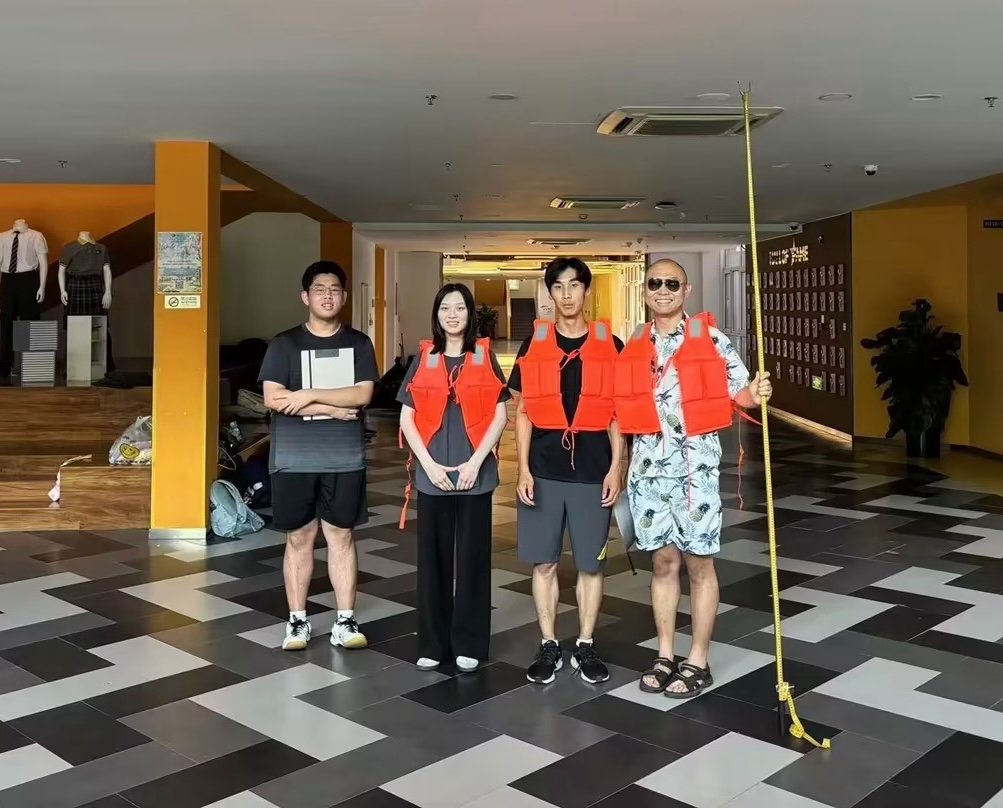
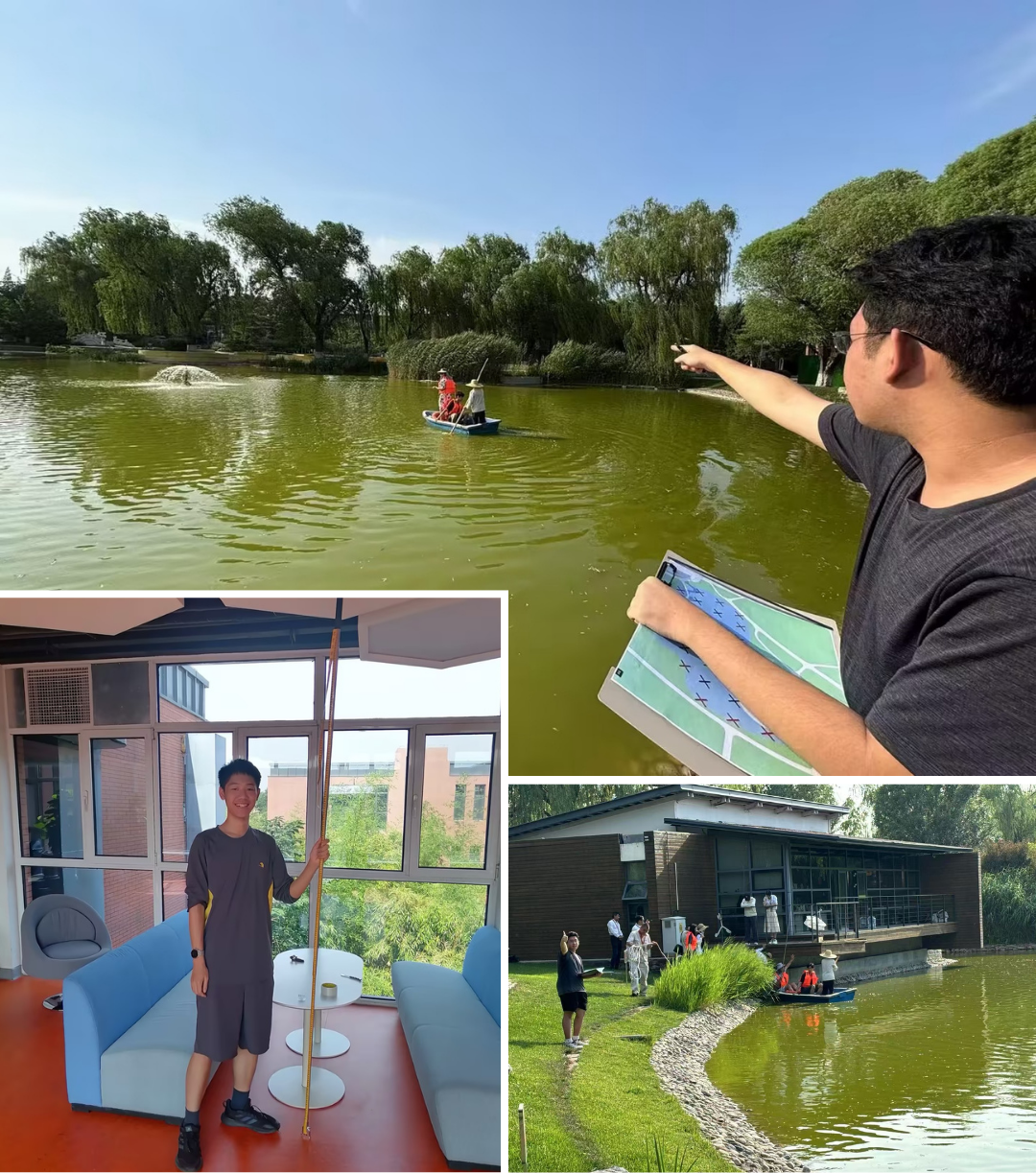
Students and Dr. Dong conducted the experiments in school's lake
"Long-term ecological research is a category of study in environmental science," Dr. Dong explained. "The students’ project represents the preliminary findings of a larger long-term ecological observation initiative."
During the past year, the research progressed steadily. The students conducted measurements and experiments, while analyzing data in their spare time. After several attempts and iterations, they ultimately decided to focuse on the inorganic nitrogen concentration in the lake and produced preliminary findings on the water quality of school’s lake. This research will continue to develop in the future.
"This is a student-initiated and student-led research project," Dr. Dong emphasized. "The school has provided abundant resources, from after-school programs to various research instruments in the chemistry and biology laboratories, all resulting from the school’s long-term investments."
The school’s support for student academic research continues. This semester, the school purchased a professional weather station to support future student research projects. The station can automatically monitor environmental data 24/7 of campus and has been already put into operation. The collected data will be shared with all teachers and students in the future.
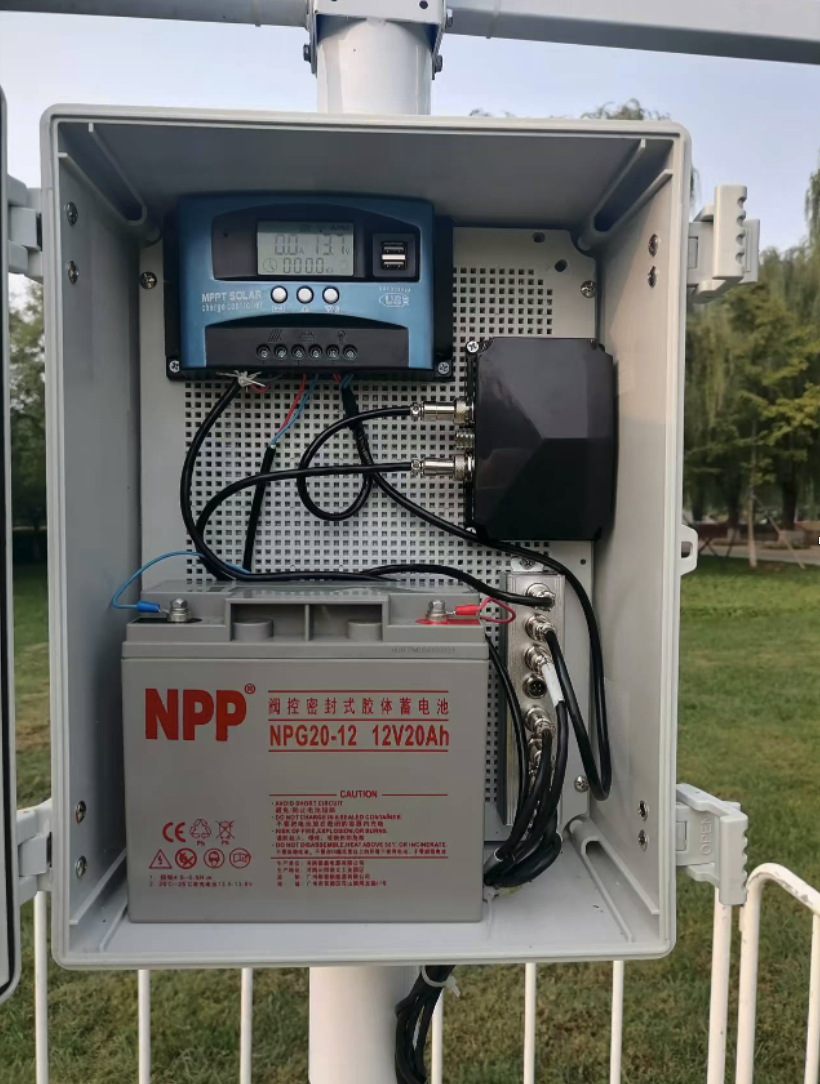
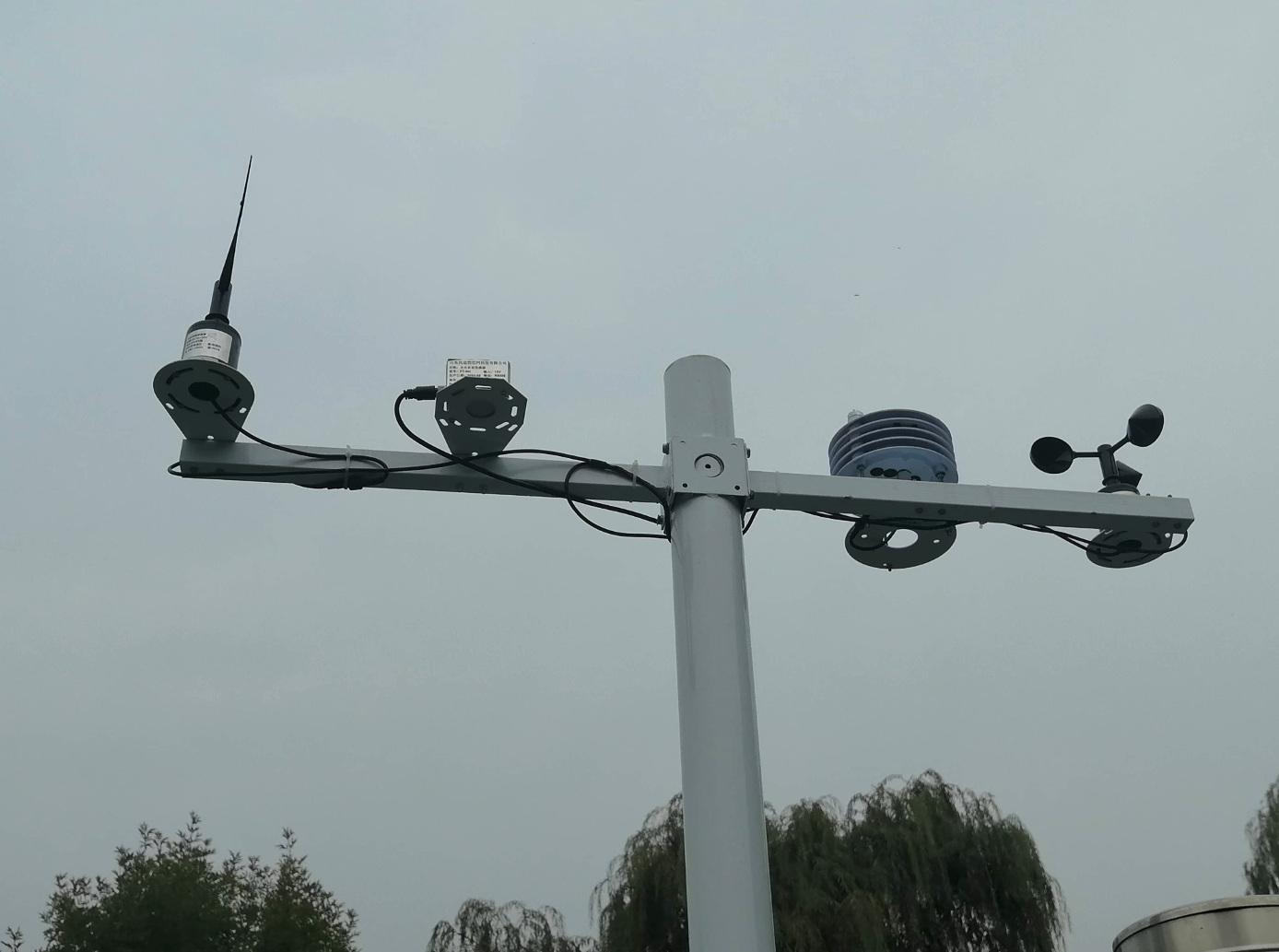
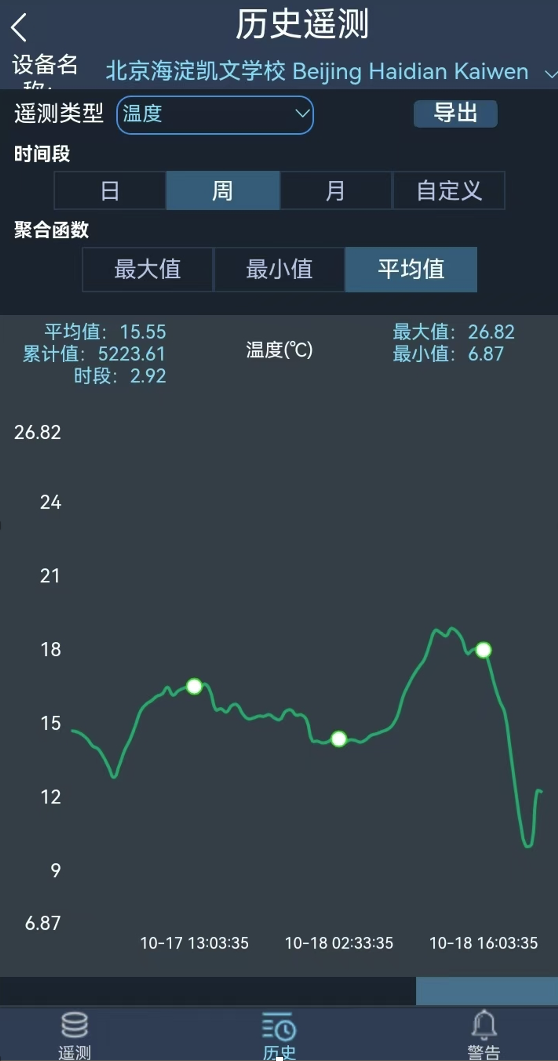
The weather station is currently in operation
"We hope to provide students with a tool—not just for this project but also for any student’s curiosity about environmental topics—to help them explore these questions further," Dr. Dong said.
02
Years of Refinement Form an Effective Disciplinary System
In this project, the school’s disciplinary system and the cultivating top innovative talents have shown effctiveness.
In recent two years, the school has launched initiatives such as the "Elite Program" to provide outstanding students with top academic resources and platforms, continuously supporting the cultivation of innovative talents. HDKWA has its own understanding and practices for nurturing such talents. On the one hand, the school acknowledges and addresses individual differences, offering students various levels of course options to ensure that specific talents are not wasted in their areas of expertise. On the other hand, the school emphasizes fostering creativity, encouraging students to explore and innovate, and promoting interdisciplinary attempts to integrate knowledge across subjects. With the advent of the artificial intelligence era, the high school division has also focused on refining excellent courses in computer science, science, and mathematics to further support the cultivation of top innovative talents.
The cultivation of top innovative talents is built on an effective disciplinary system. After years of refinement, HDKWA has developed a mature cultivation model and curriculum system that respects students’ academic individuality while ensuring course progression and diversity. The high school not only offers a wide range of courses, but also designs different levels in various subject courses to meet the individual needs of students. Each student can plan their academic path based on their interests.
For example, the AP Environmental Science course requires prior completion of advanced courses in chemistry, biology, or physics, which in turn have their own prerequisite foundational courses. Only by completing the corresponding courses and achieving the required grades in lower grades can students choose more challenging advanced courses in higher grades.
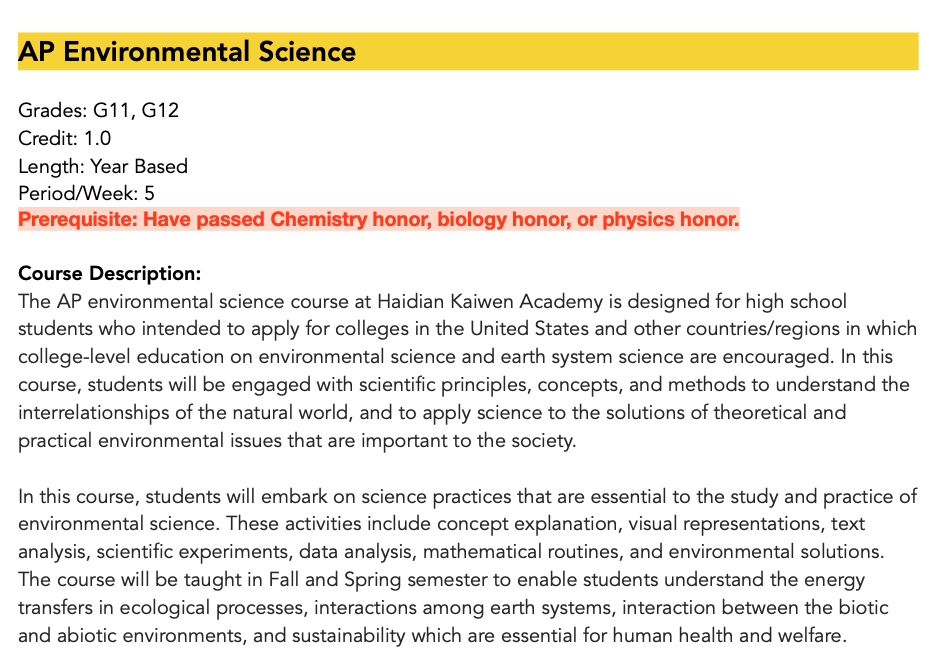
AP Environmental Science Course Introduction
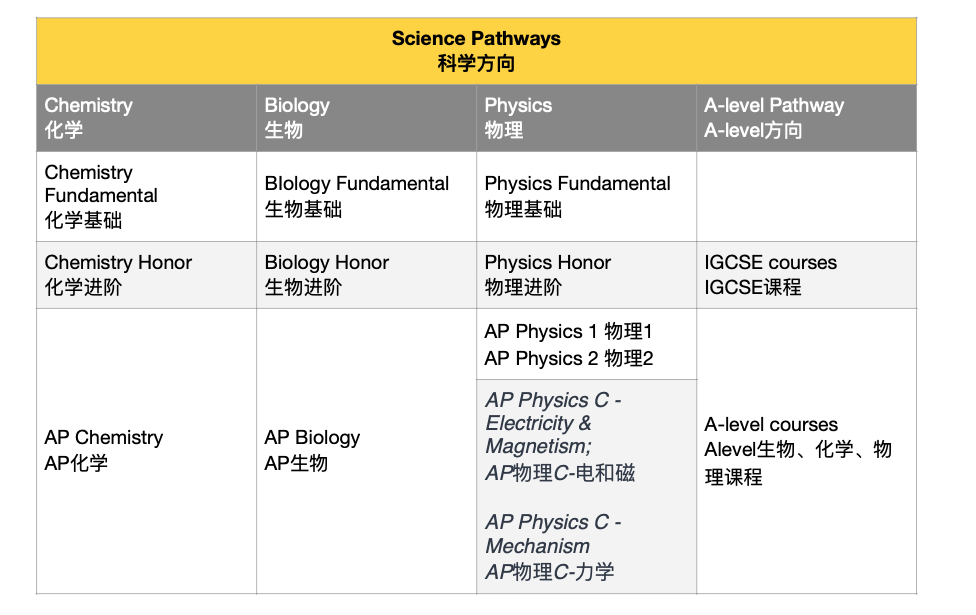
Science Pathways in the curriculum system of HDKWA High School
While refining the course pathways, the school has also continuously expanded course richness, offering more diverse courses within the same disciplinary fields. In addition to compulsory courses, the high school provides a wide range of courses in language application, natural sciences, computer science, humanities, social sciences, arts and music, including 23 AP courses. Furthermore, the high school offers over 80 after-school activities, covering academic tutoring, academic competitions, sports teams and clubs, music clubs, student clubs, as well as other after-school activities (ASA) courses such as language learning.
03
Changing the World Starts with Changing the Community
Reflecting on the students’ ecological management project, Ms. Shen believes that the most important aspect of the entire research project is its origin—students connecting with a topic.
In an era where the world seems to be at our fingertips, students can easily learn about global changes, cutting-edge technologies, and even address humanity’s shared challenges. But how do these "issues" relate to "me"?
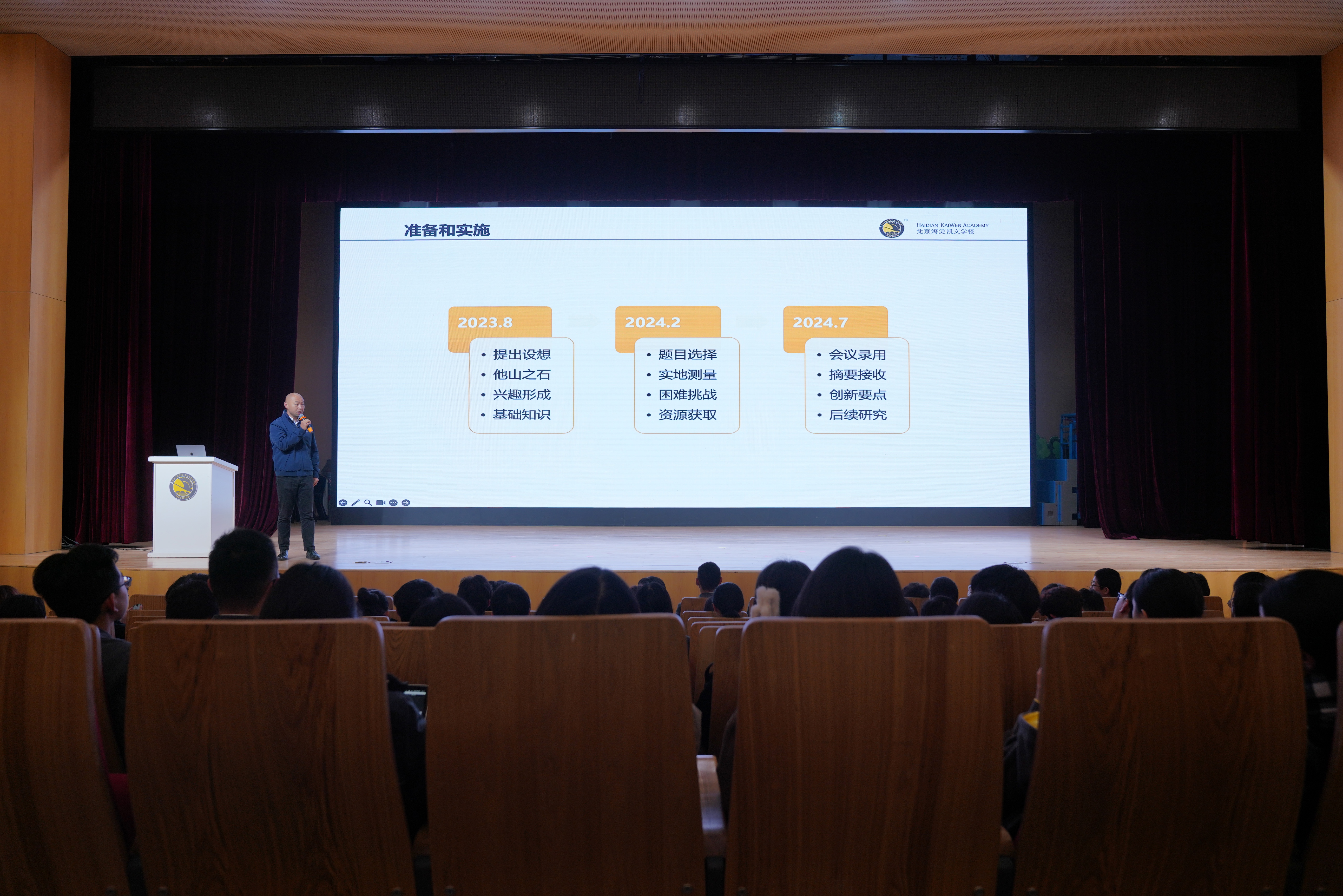
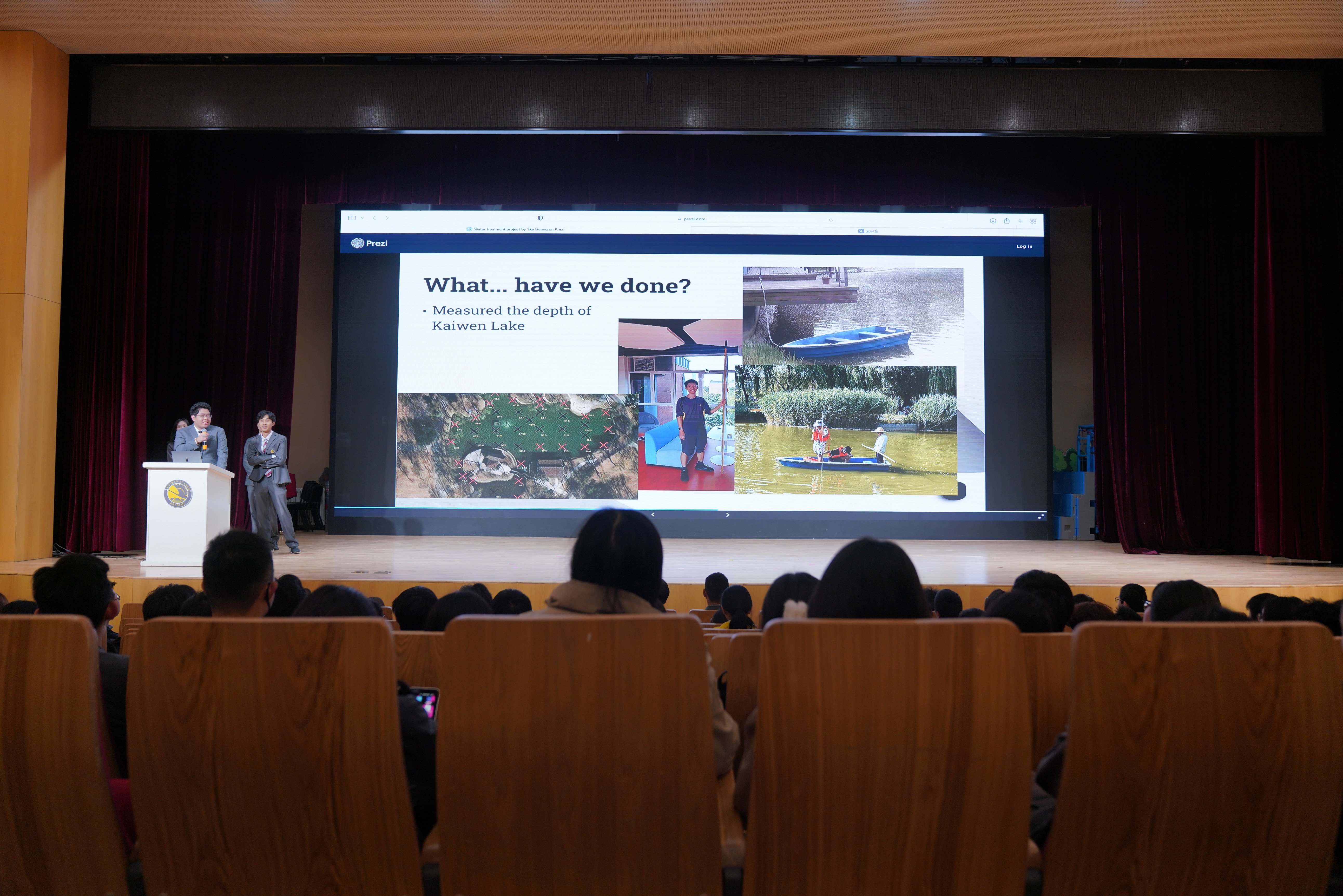
Students and Dr. Dong presented this project at the high school assembly
Research arises from observing life, perceiving the environment, and, more importantly, continuously asking oneself, "What can I do?" Building a connection with a topic is a developmental process for high school students, which is why the school consistently encourages students to become problem-solvers and bring positive change to their community. The school aims to guide more students to spontaneously observe and explore their surroundings, actively serve and bring positive change to their community, and become problem-solvers, while also providing an open platform and maximum support.
At HDKWA, we firmly believe that students’ seemingly small actions can become the starting point for contributing to global issues in the future. Changing the world begins with changing the community. By integrating a sense of responsibility and action into daily life, these small streams will one day converge into a great power for making the world a better place.